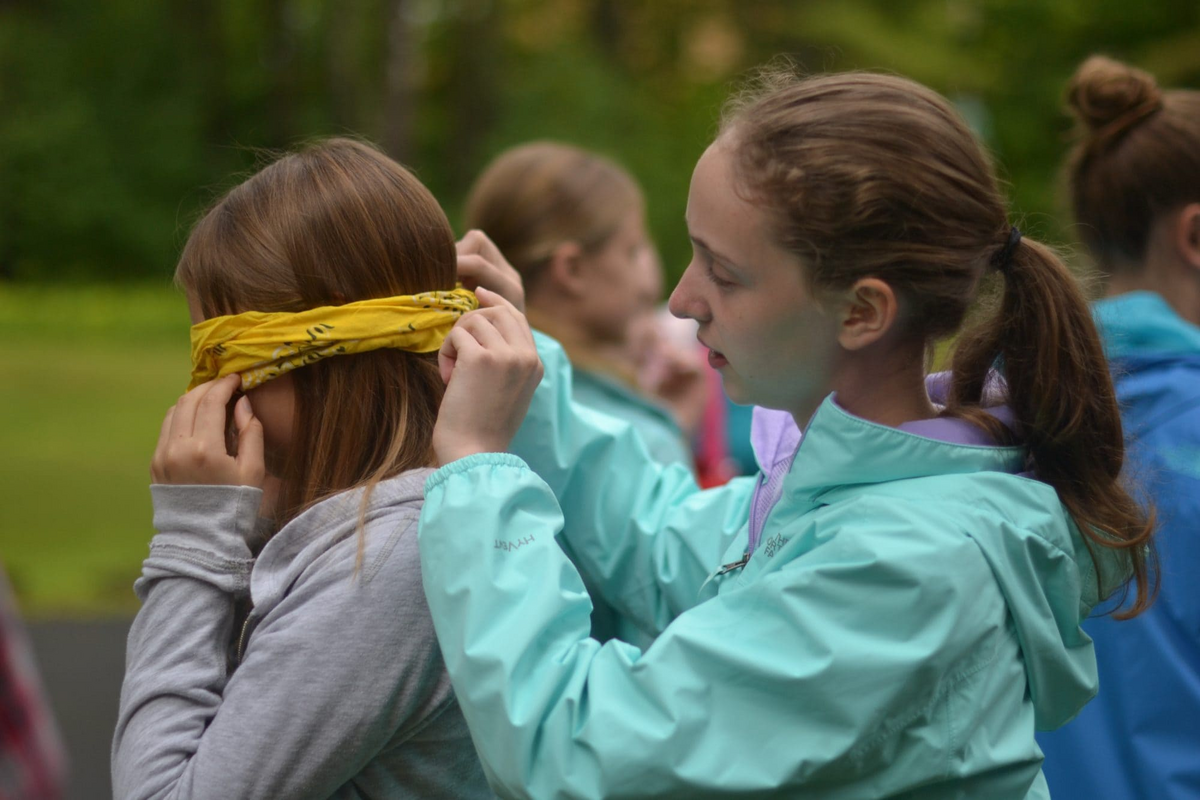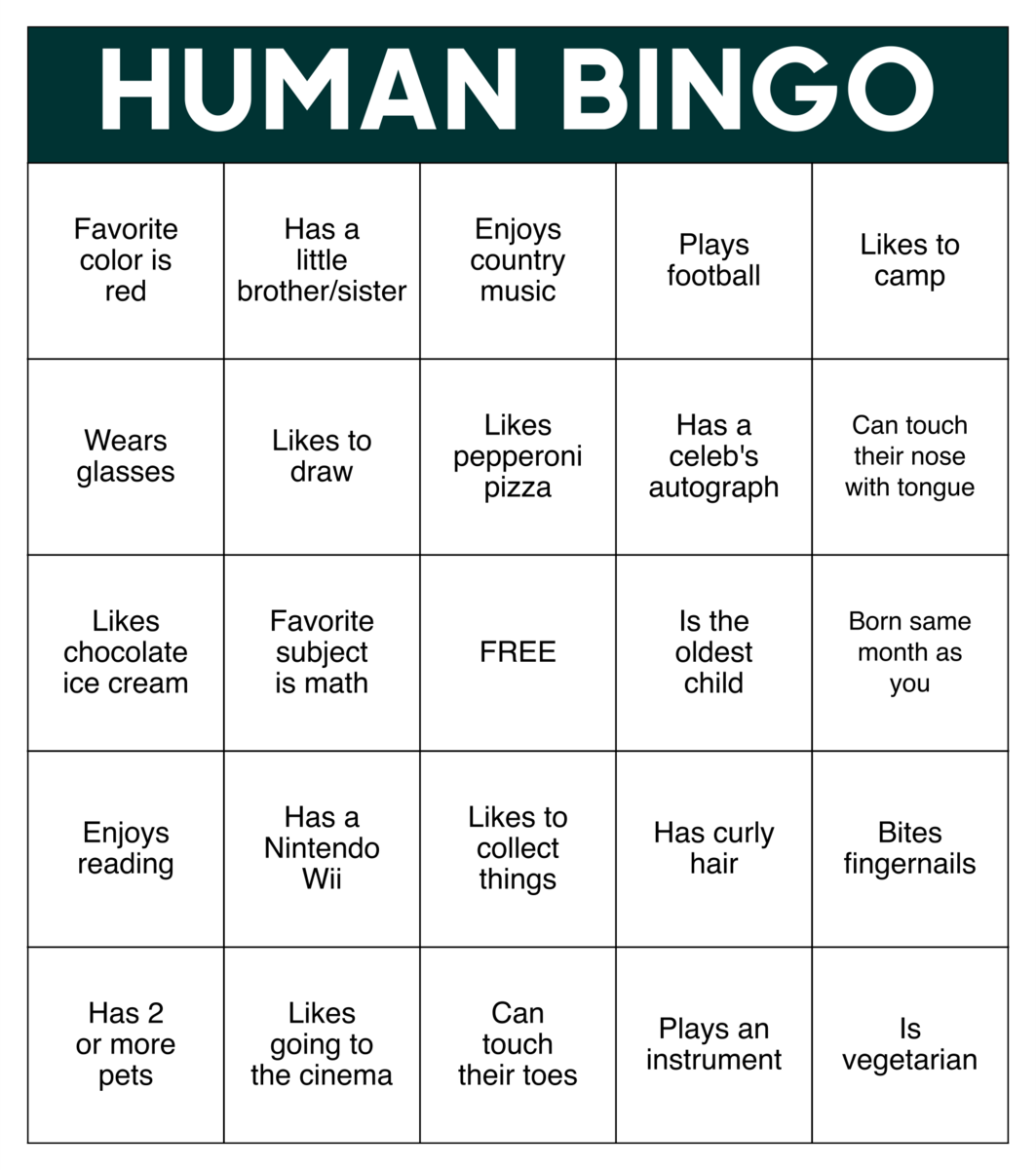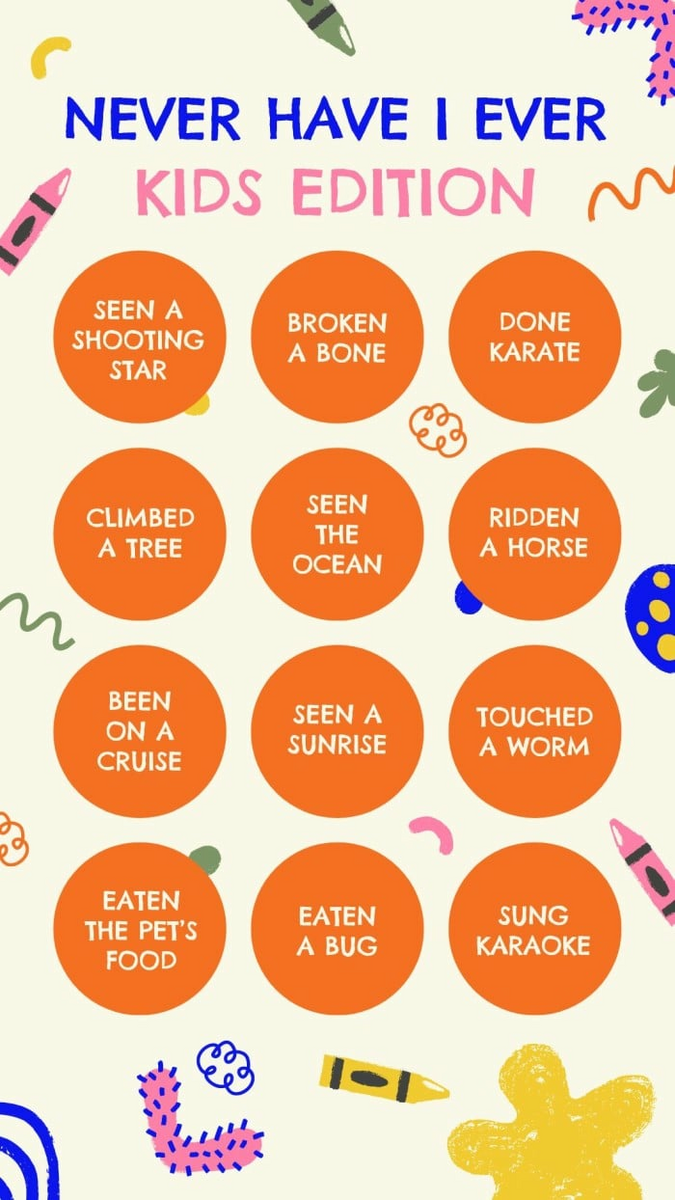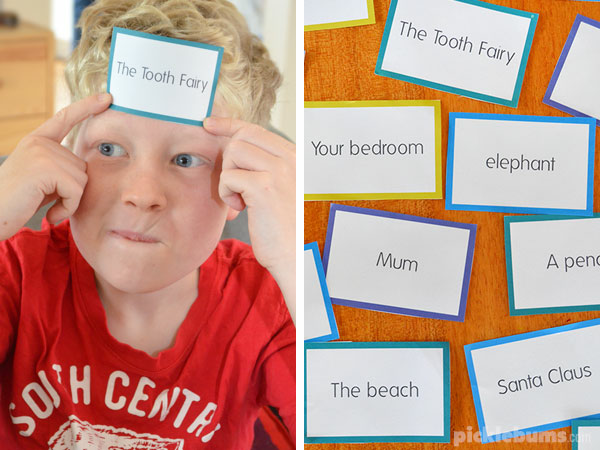The first day at a summer camp can be awkward.
Campers don’t yet know each other; some are more shy than others, and you can feel the nervous tension in the air.
Luckily, there’s a proven remedy for those situations—icebreaker activities.
You can do many things to encourage campers to relax, get to know each other, and build trust.
In this article, you will get great icebreaker ideas that will help you to provide your campers with a stellar experience from day one.
- Alphabet Name Game
- Blind Draw
- Desert Island
- Elephant, Giraffe, Unicorn
- Find Your Partner
- Get Your Life in Order
- Hog Call
- Human Bingo
- Judge a Book by Its Cover
- Memory Circle
- Never Have I Ever
- Ruoy Eman
- Shipwrecked
- Silent Interview
- Size Me Up
- The Big Wind Blows
- Trust Walk
- Two Truths and a Lie
- Where Do You Stand
- Who Am I
- Conclusion
Alphabet Name Game
The Alphabet Name Game is a great icebreaker game for introducing campers to one another but also for ensuring that everyone remembers each other’s names.
You start a game by arranging players in a circle, facing one another.
The first player needs to say an adjective that starts with the same letter as their first name and then state their first name, for instance:
- Cheerful Charlie
- Generous Gale
- Sleepy Selma
The following players do the same, but they also have to remember and repeat all the adjectives and name combinations they heard until it is their turn.
To make things fair and challenging to everyone, it would be best to rearrange the players after the circle is completed.
Blind Draw
Blind Draw is an excellent icebreaker that encourages teamwork.
First, you split the group into pairs.
Then, you give them the materials for the game, which you need to prepare in advance—blank white papers, pens or pencils, and game papers.
You’ll also need a separate game paper with various shapes or objects on it, similar to the image shown below:

Source: Regpack
The teammates should sit back to back.
One of them has the game paper and describes shapes on it, while the other one needs to draw on their blank paper according to the instructions from their teammate.
When they’re finished with all of the shapes, they can switch.
The point is that one camper draws only from the instructions they get from the other camper, so they need to work well together to produce good results.
Desert Island
This game provides multiple benefits—it’s a great way for campers to get to know each other and work together as a team.
The rules are simple. Each participant needs to name one item they would take with them on a desert island.
The point is not to choose a generic item like a bottle of water or something similar, but to choose an item that shows their interests and personality, like:
- A guitar
- A basketball
- A certain book
- A cat
That’s how the participants will learn more about their fellow campers.
The second part revolves around teamwork.
Campers should form groups according to their items and find a way to combine them to maximize their chances of survival on a desert island.
Elephant, Giraffe, Unicorn
This game brings out the creativity in participants, and how they approach it is only limited by their imagination.
The campers are standing in the circle, with one of them being in the center.
The person in the center of the circle points at one of the others. Then, the fun begins.
The camper who is pointed at, as well as the one on the left and the right, work together to make an elephant, a giraffe, or a unicorn.
For instance, if they want to make an elephant, the person in the center will form a trunk with their hands, while the other two can form the ears.
You can see how the game works in the video below.
Source: Bernie DeKoven on YouTube
Another advantage of this game is that you can propose other animals or even objects.
Therefore, campers can impersonate a monkey, a squirrel, or a duck, but also a toaster or a palm.
The possibilities are virtually endless.
Find Your Partner
This game has different variations, and we’ll explain one of them in this section.
For it, you need to pair up the campers and provide them with one blindfold per pair. One person should be blindfolded, and the other should be their guide.
The game is played similarly to a tag, except there is no running. Some pairs are “it”, while others have to avoid them.
The pairs are scattered across the field or a playground, and the role of the guide is to use verbal instruction or a hand on a shoulder to guide the blindfolded partner, whose role is to tag other pairs.

Source: Forest Lake Camp
After some time, partners should switch roles so that everyone experiences what it’s like to be blindfolded and how it feels to guide the other person.
Get Your Life in Order
You don’t need any equipment or items for this icebreaker game, only a little imagination.
As the team from Campminder explains, the aim of the game is to line up in order according to instructions.
What does that mean? For example, you can divide your campers into groups of four or five.
The exact number doesn’t matter as long as it isn’t too small or too large and the groups are equal in size.
Then, you provide them with instructions. For instance, you can tell them to line up based on simple criteria, like their:
- Height
- Hair length
- Finger length
Essentially, you want a visual element that they can easily compare.
On the other hand, you can make it more complex and encourage them to get to know each other better by instructing them to line up according to:
- The number of pets they own
- The number of siblings
- The date of their birthday
And so on. That way, they’ll communicate within the group to learn information about each other so they can line up properly.
Hog Call
Hog Call is another icebreaker game that requires very little equipment. The only things you need to provide are blindfolds.
In Hog Call, the campers are divided into pairs, and both paired campers are blindfolded and on separate sides of the playing field.
They need to think of their “hog calls”—in this context, the related words that will help them find each other while being blindfolded.
For example, one person might yell “Pop”, and the other one calls “Corn”, or one says “Basket” and the other “Ball”.
The goal of this activity is to find a partner by moving slowly across the playing field following their voice.
You can see how the game is played in the video below.
Source: WestNewtonPE on YouTube
It goes without saying that, like every other game that involves blindfolding, the players should be warned to move slowly and extend their arms to maximize safety.
Human Bingo
Human Bingo is a fun icebreaker game that can bring campers together if you prepare it well.
Similarly to regular Bingo games, you’ll need a Bingo chart.
It consists of fields with various statements.
The game’s goal is for each player to go around the group, have conversations with other campers, and find ones that match one of the statements on the card.
For instance, a card can look like this:

Source: Printable
As you can see, the statements can be more serious, like “Plays an instrument”, or more wacky and fun, like “Can touch their nose with tongue”.
You can find a balance between informative and funny statements so the campers get to know each other while having a lot of fun.
Judge a Book by Its Cover
Similarly to Human Bingo, this icebreaker game is based on statements. However, the goal is for campers to get to know their counselors better.
For this game, you will need to divide campers into small groups, provide a whiteboard or a table, and write down some interesting facts about each counselor you want to introduce to the campers.
You can get creative about facts to make the game more fun. Here are some examples:
- Can do a handstand
- Makes the best spaghetti in the camp
- Has six siblings
- Growls like a bear
Each group should get cards with facts about the staff members. The twist is that they don’t know which fact is about which counselor.
So, for instance, if you write ten facts about four counselors, each group of campers should get a pile of 40 cards.
The rest of the game is straightforward. The campers need to try to guess which fact is about which counselor, whose names are written on the whiteboard or on a paper on a table.
At the end of the game, campers will know a lot more about the staff.
Memory Circle
Memory Circle is a lighthearted and fun way to introduce campers to each other.
It is similar to Alphabet Name Game, but instead of pairing an adjective and a name, the campers state their name and a fact about themselves which follows the topic you set out.
For instance, you can instruct participants to tell others their names and a favorite:
- Food
- Sports
- Hobby
- Movie
- Animal
Basically, whatever you think is simple, fun, and doesn’t require much contemplation.
The campers then go in a circle, and each person has to state names and facts about the participants before them and add information about themselves.
Of course, the ones at the beginning have much less information to remember than those near the end, so mixing up the order after every round is good.
Never Have I Ever
Never Have I Ever is a game you can organize and play even if you have no equipment, making it quick and easy to set up.
The premise is that campers sit in a circle and take turns telling something that they have never done before.
If other campers have done that thing before, they must admit it.
There are many statements that can be great in this game, both in terms of getting to know each other and having fun. Here are some examples for inspiration:

Source: Wepik
The game is flexible, and you can play it with what you have on hand. For example, you can give campers five rocks, cards, balls of paper, etc.
Every time some of them does something the other camper says, they need to throw the item into the center of the circle.
The game ends when there is only one player left with at least one of those items in their hands.
Ruoy Eman
If the name of this game sounds confusing to you, just read it backward—it spells “your name”.
That also indicates the way this game is played.
You can organize the campers in a line. The first one should spell their name backward, and the camper behind them needs to figure out what the name is and say it out loud.
Then, the campers continue until the last one.
For example, if the first three campers are named Jack, Anthony, and Susan, they would spell their names like this:
- K-C-A-J
- Y-N-O-H-T-N-A
- N-A-S-U-S
You can motivate the campers to do the task as quickly as possible by setting them a time limit and a prize if they manage to do it in time.
That will make the game dynamic and exciting while also accomplishing the goal of working together as a team.
Shipwrecked
Shipwrecked is an excellent icebreaker game that encourages collaboration and resourcefulness.
The game’s premise is that the campers are on a deserted island with various items to salvage from the plane wreckage.
This game requires some planning ahead because you need to ensure that you have the actual items for the game, like water, food, ropes, matches, etc.
The other option is to have pictures of those items.

Source: FatCamera via Canva
Then, you should divide campers into groups and give them a time limit, for instance, 30 minutes.
During that time, they need to salvage items and choose which are more important than others.
The additional element that makes the game interesting is the limited number of items, so not everyone can get water, food, and other items most important for survival.
That will encourage them to negotiate, exchange goods, and learn to think strategically.
Silent Interview
This icebreaker game will challenge campers to use their imagination and communicate in ways they are not used to.
You should divide them into pairs and preferably match the campers who don’t know each other.
The paired participants can only introduce themselves to one another; from there, all speaking or sounds are forbidden.
The goal for them is to communicate three things about themselves to their partner using only miming, as you can see in the video below.
Ultimatecampresource on YouTube
Once they are all finished, you can invite them into a circle, and every camper should introduce their partner to others and tell them the three things they learned about them through the silent interview.
Even if they got some things wrong, it’s still a great opportunity to have fun as a group.
Size Me Up
This icebreaker activity allows campers to get to know each other’s interests and learn a lesson about judging each other before they know them.
You will need some preparation for this game.
First, you need an area big enough that you can assign areas or corners that represent various interests campers might have, like:
- Sports
- Singing
- Programming
- Reading
- Video games
Second, you need to prepare cards for each camper. It can be one card with one green and one red side or two separate cards in each of those colors.
Then, the game can begin.
The campers should start in the areas that don’t represent their interests, and the goal is for everyone to end up in the areas that match what they love to do.
The campers take turns sizing each other up and trying to guess what activity could match them.
If they send the other camper to the wrong area, that camper holds the red card up. On the other hand, if they guessed correctly, the camper holds up the green card.
The game is finished when everyone is in the correct area that matches their interest.
The Big Wind Blows
This icebreaker game is fun and dynamic while providing a chance for campers to learn interesting things about one another.
The game starts with forming a circle with one person in the middle.
That person starts the sentence with “The big wind blows for anyone” and then states a fact.
For example, they can say, “The big wind blows for anyone who owns a dog.”
Then, anyone who has a dog needs to run to the center of the circle and from there, find a new spot on the edge of the circle to stand, including the person who started in the center.
Source: Ultimatecampresource on YouTube
Since there aren’t enough places in the circle for everyone, one person will end up in the middle, and it’s their turn to continue the game with another statement.
Trust Walk
Trust Walk is another icebreaker game that involves blindfolds and aims to build trust among the campers.
One of the participants is blindfolded, while the other needs to guide them around the space using only verbal instructions.
They work in pairs, and both players need to work together.
The one providing the instructions should be clear and put themselves in the shoes of a person who can’t see.
On the other hand, the blindfolded player should listen carefully and trust the instructions of their teammate.

Source: Robert Kneschke via Canva
You can make the game more interesting by adding obstacles to the space.
Of course, you shouldn’t put anything dangerous; boxes, pillows, or padded chairs should do the trick.
Two Truths and a Lie
This simple game requires no equipment and can be an entertaining way to introduce campers to each other.
The premise is simple—a player states three facts about themselves, and one of them should be a lie.
The rest of the players need to decide which fact was untruthful and see if they figured it out.
If the players think of interesting facts that might all be true, the game can be challenging and fun.
For example, they can tell outrageous lies that are immediately obvious, but also make more nuanced statements like:
- I have four sisters
- My family owns a horse ranch
- I don’t like chicken, but I love broccoli
In any case, Two Truths and a Lie is an excellent game to learn many interesting facts about other players and encourage them to bond.
Where Do You Stand
This is another game that’s easy to organize and can be very fun, especially for younger children.
There is no special preparation in terms of equipment; you only need to think of enough interesting topics for your campers.
The game is straightforward—you propose a topic, and players then sort themselves into groups based on their opinion on that topic.
Topics can be essentially anything, for instance:
- Favorite pizza toppings
- Favorite animal
- Favorite color
- Favorite superhero
Let’s say you ask them what’s their favorite superhero. They can then form a group for Batman, Iron Man, Spider-Man, etc.
The more interesting topics you choose, the more fun it will be for your campers to play.
Who Am I
Who Am I is a game that can be played anywhere, including the summer camp. All you need is enough cards for your players.
The cards usually have the name of some famous person on them, but you can also write an animal, an item, or basically anything that can be easily described.
Each player gets a card and sticks it on their forehead or their back. The point is that they can’t see what is on their card.

Source: Picklebums
The players then ask others questions to learn more about their new identity on the card. They can ask anything as long it’s not a direct question about who or what they are.
The other rule you can establish to encourage campers to talk with everyone is to allow them one question per person.
The game ends when everyone figures out who or what they are.
Conclusion
A big part of the summer camp experience for every child is socializing and making new friends.
However, for some children, that can be more challenging than for others.
You don’t want any of your campers to feel left out for any reason.
That’s why the icebreaker ideas we presented in this article are so helpful —they are a fun and easy way to get everyone involved and kickstart the summer camp experience they’ll never forget.


















